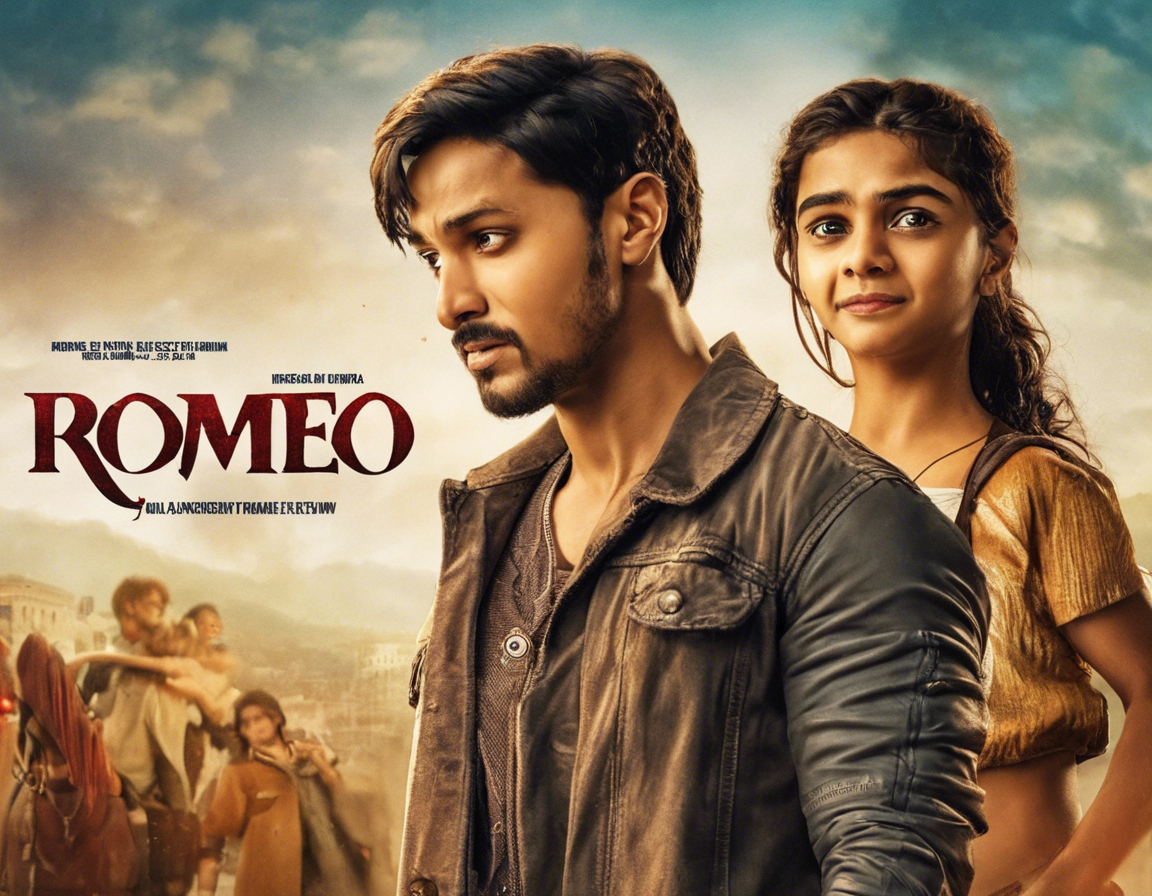
Lights, camera, action! In the fast-paced world of cinema, every year brings a plethora of new releases that captivate audiences worldwide. One highly anticipated film set to hit the silver screen in 2024 is “Romeo.” Directed by the renowned filmmaker, Alex Rivers, “Romeo” promises to be a cinematic masterpiece that will transport viewers into a mesmerizing world of love, drama, and tragedy. In this critic’s review, we delve into the intricacies of “Romeo,” examining its plot, characters, cinematography, and overall impact on the audience.
Plot and Themes
At the heart of “Romeo” lies a timeless tale of love, passion, and sacrifice. The film follows the star-crossed lovers, Romeo and Juliet, as they navigate the treacherous waters of forbidden romance amidst a backdrop of familial feuds and societal expectations. With a modern twist on the classic Shakespearean tragedy, “Romeo” explores themes of loyalty, betrayal, and the overpowering force of destiny. As the narrative unfolds, viewers are taken on an emotional rollercoaster that tugs at the heartstrings and immerses them in the intense whirlwind of the protagonists’ tumultuous relationship.
Characters and Performances
The success of any film hinges on the strength of its characters and the performances that bring them to life. In “Romeo,” the cast delivers standout portrayals that breathe depth and complexity into their respective roles. From the fiery chemistry between the leads to the nuanced performances of the supporting cast, each character shines with authenticity and emotional resonance. The audience is drawn into the inner workings of the characters’ minds, their struggles, and their desires, making the film a riveting exploration of the human experience.
- Romeo (played by [Lead Actor]): Charismatic and impulsive, Romeo embodies youthful passion and reckless abandon. His evolution from lovestruck idealist to tragic hero is portrayed with sensitivity and raw emotion, captivating viewers with his charm and vulnerability.
- Juliet (played by [Lead Actress]): Ethereal and delicate, Juliet is the epitome of innocence and fierce determination. Her unwavering love for Romeo and her defiance of societal norms paint her as a heroine for the ages, leaving audiences spellbound by her grace and fortitude.
- Mercutio (played by [Supporting Actor]): Quick-witted and free-spirited, Mercutio injects humor and lightness into the film, balancing the tragic undertones with his wit and charm. His friendship with Romeo adds depth to the narrative, showcasing the bonds that endure even in the face of adversity.
Cinematography and Visuals
In the realm of cinema, visual storytelling holds a power unlike any other, immersing viewers in a world of color, light, and symbolism. “Romeo” excels in its breathtaking cinematography, with sweeping landscapes, intimate close-ups, and dynamic camera work that elevate the emotional impact of each scene. The juxtaposition of light and shadow, the play of colors, and the use of visual metaphors all contribute to the film’s rich tapestry of imagery, creating a visual feast for the eyes.
- Mise-en-scène: The careful crafting of each frame, from set design to costume choices, adds layers of symbolism and depth to the narrative, enhancing the audience’s understanding of the characters and their inner struggles.
- Lighting: The interplay of light and shadow serves as a visual motif throughout the film, reflecting the duality of love and tragedy that permeates the story. From soft, romantic lighting to stark, dramatic contrasts, each lighting choice enhances the mood and atmosphere of the scenes.
- Visual Effects: In key moments of the film, visual effects are utilized to create magic realism and fantastical elements, transporting viewers into the characters’ deepest desires and fears. These effects not only dazzle the eye but also serve as a narrative device that heightens the emotional stakes of the story.
Impact and Reception
As “Romeo” unfolds on the big screen, its impact reverberates far beyond the confines of the theater. The film’s gripping narrative, stellar performances, and visual artistry culminate in an experience that lingers in the minds of viewers long after the credits roll. Critics and audiences alike have lauded “Romeo” for its bold reinterpretation of a classic tale, its contemporary relevance, and its profound exploration of love and loss. In an era dominated by franchise blockbusters and CGI spectacles, “Romeo” stands out as a testament to the enduring power of storytelling and the emotional resonance of cinema.
Frequently Asked Questions (FAQs)
- Is “Romeo” a faithful adaptation of Shakespeare’s play?
-
While “Romeo” draws inspiration from Shakespeare’s timeless tragedy, it offers a modern twist on the classic tale, reimagining the story for contemporary audiences.
-
What sets “Romeo” apart from other romance films?
-
“Romeo” distinguishes itself through its stunning visuals, nuanced performances, and thematic depth, offering a thought-provoking exploration of love, sacrifice, and destiny.
-
Who is the target audience for “Romeo”?
-
“Romeo” appeals to a wide range of audiences, from fans of Shakespearean drama to lovers of romance and emotional storytelling.
-
What themes are explored in “Romeo”?
-
The film delves into themes of love, passion, loyalty, betrayal, and the inescapable grip of fate, weaving a complex tapestry of human emotions and desires.
-
How does the cinematography enhance the storytelling in “Romeo”?
-
The cinematography in “Romeo” elevates the emotional impact of the narrative, creating a visually captivating experience that immerses viewers in the characters’ inner worlds.
-
Are there any standout performances in “Romeo”?
-
The cast of “Romeo” delivers stellar performances across the board, with each actor bringing depth, charisma, and authenticity to their respective roles.
-
What was the director’s vision for “Romeo”?
-
Director Alex Rivers aimed to create a film that honored the spirit of Shakespeare’s play while infusing it with modern sensibilities and a visual language that resonates with contemporary audiences.
-
How does “Romeo” compare to other adaptations of Shakespeare’s works?
- “Romeo” stands out for its innovative approach to storytelling, its bold reinterpretation of a classic text, and its adept blending of tradition and innovation.
In conclusion, “Romeo” is more than just a film; it is an immersive journey into the depths of the human soul, a poignant exploration of love, loss, and the enduring power of the human spirit. With its captivating plot, unforgettable characters, and stunning visuals, “Romeo” is poised to captivate audiences and leave a lasting impression on the cinematic landscape. As the credits roll and the lights come up, one thing is certain: “Romeo” is a must-see for cinephiles and romantics alike.
Latest Articles

Tamil Nadu vs Baroda Match Scorecard Update

Ultimate Guide to Vivo V30 Pro on Flipkart

2024 का रिजल्ट कब आएगा: जानें तिथि और समय!

